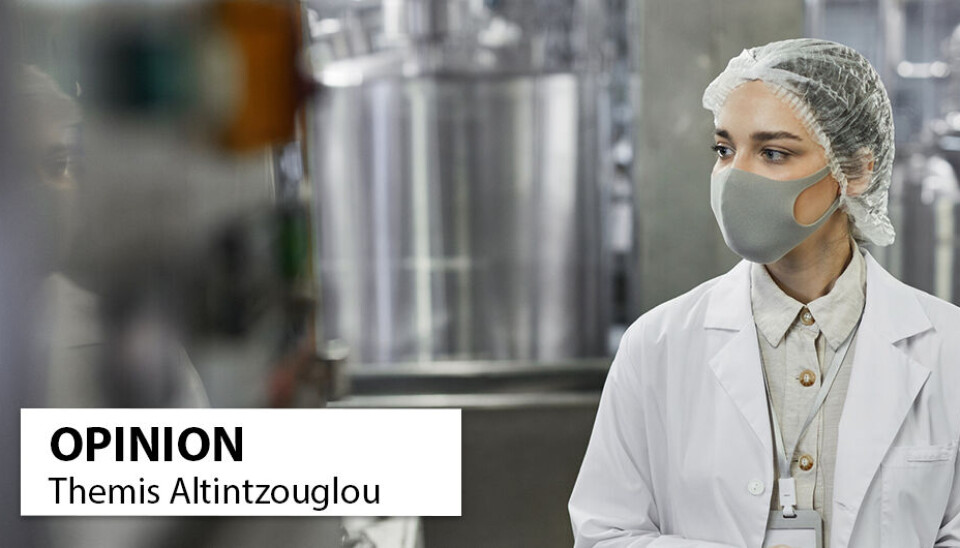Opinion:

The food processing technologies we fear the most
OPINION: For the most part, there are some types of food processing technologies that we accept, while we are more sceptical towards others. Why is this, and what does it mean?
Recently, the food industry has significantly improved food safety and shelf-life without compromising quality, taste and nutritional content. New processing technologies are central to this development, including high pressure, microwaves, UV light, pulsating electric fields, plasma-activated water and ultrasound (confer fact box for extended detailed description).
These technologies offer many benefits, and consumers are increasingly technically competent in understanding these benefits. So, one may think that now it’s time to start using modern processing technologies and their benefits in marketing communication.
But, in most cases, the use of these processing technologies is not disclosed for fear of triggering unwanted consumer reactions. And rightfully so!
Convenient, healthy food with long self-life
We found that consumers prefer to know the benefits of such innovative processing technologies. The benefits that the consumers preferred were convenience, longer shelf-life, retained nutritiousness, retained vitamins and reduced sugar content.
But, when looking at the innovative technologies that each can contribute in their own way towards these benefits, only three were preferred. First was microwaves, then high pressure and on borderline acceptance was ultrasound. Below the threshold of acceptance, consumers would not accept UV light, then pulsating electric fields, and the least accepted was plasma-activated water.
Looking at the rank order of preferred and unpreferred technologies, we notice that they follow a logical order. That is the order of familiarity. The more familiar the technology, the easier it is for us to digest the information about its use in processing our food—the food we put in our bodies.
Fear of the unknown
As the author H.P. Lovecraft nicely expressed:
«The oldest and strongest emotion of mankind is fear, and the oldest and strongest kind of fear is fear of the unknown.»
This sentence hits the nail on the head regarding what we in consumer science call neophobia. Consumers are sceptical towards new things, including food and innovative technologies used to process food. Consumers are wary about processed food, so innovative processing takes time until consumers can understand and accept it as insurance for food safety and a guarantee of lasting, preferable taste.
But there is something more to this challenge. Consumers do not trust that companies act in the best interest of the consumers. They believe that food processing and ultra-processing may introduce health risks that companies overlook due to their singular focus on profit.
Initially, we thought microwave technology was strange and potentially harmful to our health.
There has been repeating negative media about the risks some food processing can introduce to some food products. However, innovative food processing technologies are also developed to remove those risks.
Even the least idealistic companies that focus 100 per cent on profit would not wish to cause health risks to the consumers. This is due to the negative impact this could have on their brand image, because of the negative media attention this would lead to and potential harm caused to their customers.
Acceptance through exposure to benefits
The use of these technologies, whether accepted by consumers or not, will continue. The benefits are far too many, and the health and safety risks that are being reduced are far too significant. Familiarity with these technologies will increase slowly as we get regularly exposed to these benefits.
Let’s look at microwave processing as an example. Initially, we thought microwave technology was strange and potentially harmful to our health. With continuous developments on the technical side, parallel with research on health risks, we find microwave ovens in many households.
We have accepted the technology and its benefits to our everyday life. We have also experienced that the use of microwave technology is not harmful to ourselves, as some media overemphasised to generate profit from selling newspapers and TV advertisements.
Trusting the food industry
Could it be that soon we will have high-pressure processors in our homes? That would probably be challenging due to the size of the equipment the high-pressure processing technology requires. But we do consume high-pressure processed juices regularly and enjoy long-lasting freshness.
Maybe one day, we will have plasma activation devices installed on our kitchen water tap, which we will turn on when we wash our vegetables before putting them in the fridge.
But then again, why not trust that food producers can do that in a professional, efficient and sustainable way? Because they also care about some things that lead to a higher profit for them; food quality, food safety and their brand image.
FURTHER READING:
Share your science or have an opinion in the Researchers' zone
The ScienceNorway Researchers' zone consists of opinions, blogs and popular science pieces written by researchers and scientists from or based in Norway. Want to contribute? Send us an email!





























